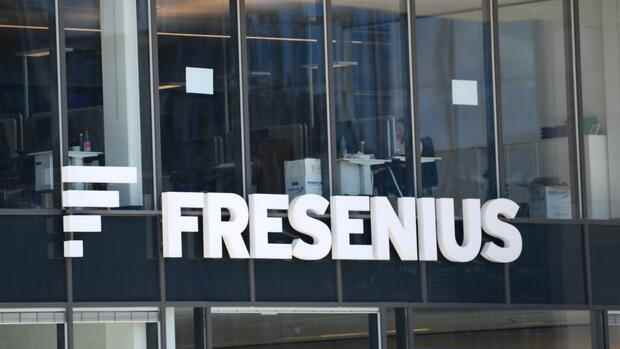The purchase of the two companies is expected to be completed by the middle of the year.
(Photo: dpa)
Frankfurt am Main The Dax group Fresenius is expanding the business of its infusion and drug division Kabi with two acquisitions. On the one hand, Fresenius acquires the majority in the Spanish pharmaceutical company mAbxience, which specializes in the manufacture of generic biological medicines. On the other hand, the healthcare group is taking over the US medical technology company Ivenix, which has developed a new infusion technology. “With these acquisitions, we are strengthening Fresenius Kabi’s position in two important growth markets,” says Fresenius CEO Stephan Sturm.
In total, Fresenius is spending around EUR 710 million on the two acquisitions. There are also milestone payments. The transactions, which Fresenius intends to finance from free cash flow and available liquidity, should be completed by the middle of the year and will make a positive contribution to the company’s profits from next year.
Fresenius has been under pressure on the stock exchange for a long time: the share has lost more than 50 percent of its value in the past five years. However, the most recent takeovers were positively received by the shareholders: Fresenius shares rose by more than 2.5 percent on Thursday morning.
The two acquisitions are the first steps in a new growth strategy for the drug and infusion division Kabi, which has been led by former Siemens manager Michael Sen since last April.
Top jobs of the day
Find the best jobs now and
be notified by email.
Kabi is considered the nucleus of Fresenius. The division offers, among other things, drugs to be administered intravenously, infusions and nutritional solutions for seriously and chronically ill patients, as well as the medical products required for administration. Since 2017, Fresenius Kabi has also been active in the field of biopharmaceutical generic drugs (so-called biosimilars). At that time, the Bad Homburg company bought the biosimilar division of the Darmstadt-based Merck group for 656 million euros.
>> Read about this: Fresenius also expects pandemic stress in 2022 – and does not rule out the sale of FMC
Kabi CEO Sen intends to concentrate on three growth areas in the future: On the one hand, the range of biosimilars is to be expanded, on the other hand the range of clinical nutritional products, and Sen also wants to expand with Kabi in the field of medical technology.
With sales of around 7.2 billion euros, Kabi was Fresenius’ third-largest division after the dialysis subsidiary Fresenius Medical Care and the hospital group Helios and delivers comparatively high margins. It is also considered the Fresenius division with the best growth and return prospects. One therefore wants to prioritize investing in the division, as Fresenius CEO Stephan Sturm announced when presenting the annual figures in February.
The Dax group, which recently had annual sales of 37.5 billion euros and a profit of almost 1.9 billion, had lost momentum in recent years and had to partially reduce its profit targets. Then there was the corona pandemic, which particularly affected the dialysis subsidiary Fresenius Medical.
Growing biosimilars business
Fresenius wants to grow faster again in the coming years, and the two current acquisitions should also make an important contribution to this. Spanish company mAbxience already has two major biosimilar products on the market, clones of Roche’s billion-dollar cancer drugs Rituxan and Avastin.
In addition, mAbxience has other biosimilar candidates in the fields of immunology and oncology, which are planned to be launched worldwide between 2024 and 2029. In addition, the company operates its own laboratories and production facilities in Spain and Argentina. Production can also be carried out there on behalf of other companies. For example, mAbxience has secured a contract to manufacture the substance of Astra-Zeneca’s Covid-19 vaccine in Latin America.
The company with around 600 employees generated sales of around 255 million euros in 2021. Fresenius wants to pay 495 million euros for 55 percent of the shares in mAbxience. There are also milestone payments linked to the achievement of commercial and operational targets. In addition, Fresenius has the option to acquire the remaining shares from the previous owners.
Fresenius is spending 240 million dollars (around 215 million euros) on the US infusion specialist Ivenix. Milestone payments are also added here. Ivenix has developed special infusion systems with large-volume pumps, tubing systems and software for control and analysis, which are intended to make infusions safer and easier. Fresenius hopes that this will provide additional growth potential in the infusion therapy market.
More: Promising Dax shares: These five titles also offer good price opportunities in a possible downturn
